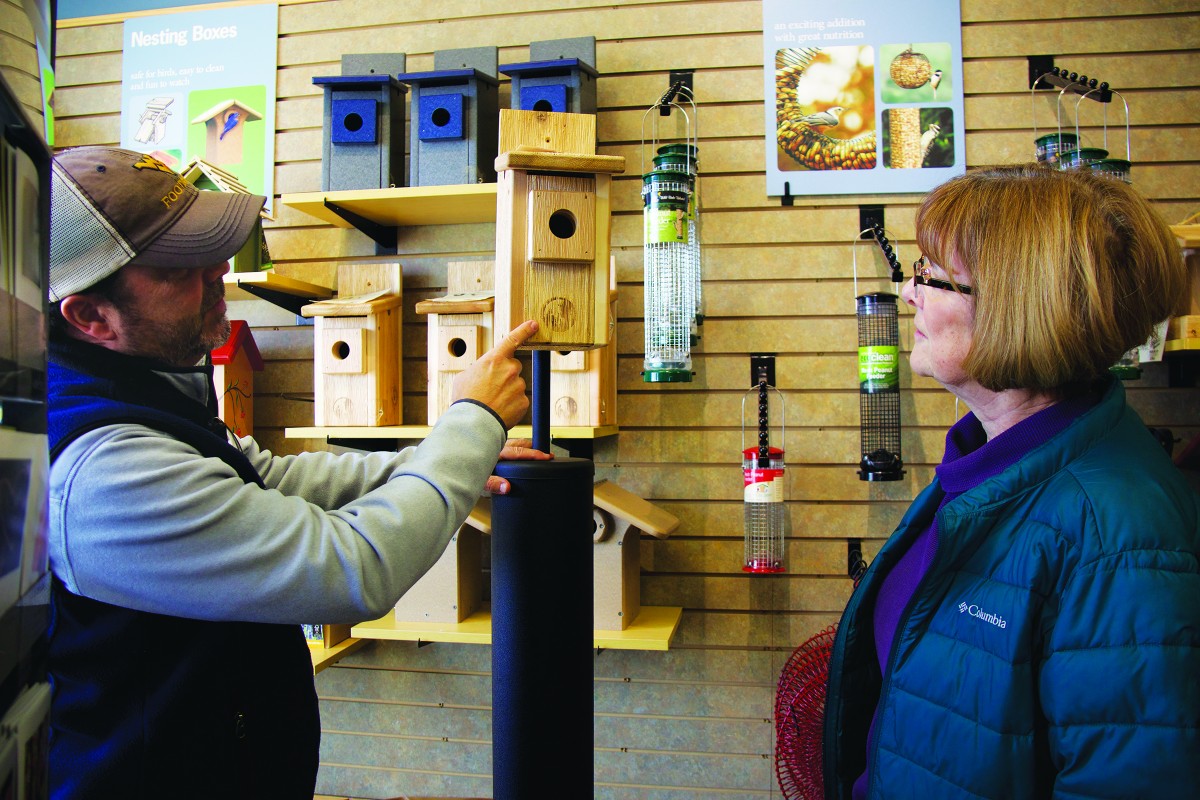MORGANTOWN — In March, the West Virginia Botanic Garden will host Scott Cavallaro, owner of Wild Birds Unlimited in the Suncrest Towne Centre, for a presentation on eastern bluebirds.
The goal of the presentation is to inform the public about the importance of helping the bluebird population grow.
The presentation will provide education on the proper procedure of placing a bluebird house and trail on one’s property, why bluebirds are important to the environment, the history of bluebirds and what people can do to help increase the population.
“People love bluebirds. … I call them America’s sweetheart,” Cavallaro said.
Cavallaro created “Operation Bluebird” for his business’ Facebook page to kick off the nesting campaign. The campaign will preface the seminar to be held at the botanic garden in the spring.
Cavallaro already placed eight bluebird houses at the garden and has plans for more there.
According to Cavallaro, during the 1940s and ’50s, bluebirds were on the “verge of extinction.” The contributing factors that led to their decline was the release of other species in the U.S. and the modernization of society.
Cavallaro said the introduction of house sparrows and starlings, competition for nesting sites, and urban development and construction were all reasons for the bluebird population’s dramatic decrease.
Bluebirds have struggled for survival with several enemies that can destroy their homes, Cavallaro said. Some of their enemies even kill the native bird, he said. His store sells bluebird houses that are all equipped with a predator guard to keep out unwanted species.
“With bluebird trails and the proper installation of a bluebird box, we can keep the starlings out just by the design of the house, but there’s still a problem with house sparrows. … They’re still the number one enemy of the bluebird,” Cavallaro said.
Other enemies to bluebirds, in addition to European starlings and house sparrows, are raccoons and snakes. In order for the population of bluebirds to thrive, open and spacious areas, including cemeteries, botanic gardens and golf courses, are great places for boxes to be put in place, Cavallaro said. These spaces allow the birds to hunt insects, which is crucial to their diet.
“Even though they build their boxes in tree cavities, they hunt for their food in grassy lands, so you want their house near their food source,” he said.
With the upcoming nesting of bluebirds in late February and early March, Cavallaro is putting up more boxes so the population will thrive.
Twitter @DominionPostWV




